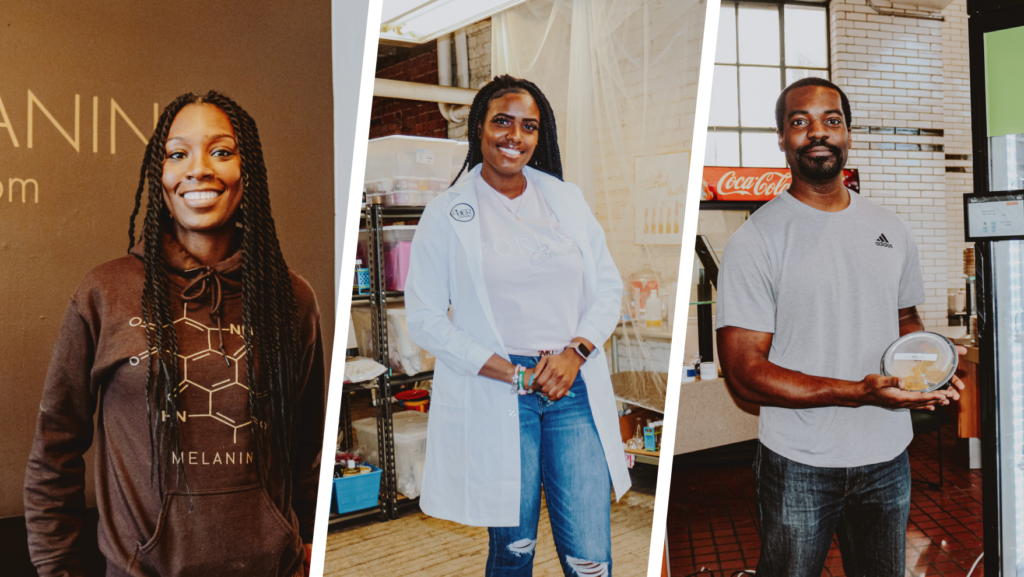“To maximize our impact, each team is focusing on one specific area of need so we can address that same problem in multiple companies and develop expertise in that area. As a result, we have eight teams: four focusing on marketing problems and four focusing on operations.”
~ Michael Willard
-
August 12, 2021
FIRST PERSON: Learning from Detroit businesses and fellow students
-
May 17, 2021
Wilkins: lifting voices and designing “urban acupunctures”
Hip-hop architecture has garnered more attention in recent years, with a major exhibition at the Center for Architecture in New York, TED Talks, and a feature in Architect magazine. But while it’s a useful concept, Craig Wilkins refuses to let the label limit a set of practices and ideals that, he argues, ought to infuse the entire profession.
-
April 20, 2021
DEI Taubman Spotlight Student is working to make the design industry more accessible
Architecture graduate student Torri Smith is a Detroit native with a passion to elevate the diverse narratives of minority students in the design field.
-
June 17, 2020
U-M students tackle social impact projects virtually
Jeni Olney, mentor and associate director for Social Innovation at optiMize, said: “For our Detroit-Track teams, there is a deep-rooted and often relentless commitment they have to themselves and their communities to share knowledge and resources and create impact together.”
-
March 10, 2020
U-M’s Ginsberg Center helps community partners connect with the university for projects and resources
As director of U-M’s Ginsberg Center, Mary Jo Callan helps make connections on a daily basis, pairing community partners addressing social concerns, such as nonprofit organizations, schools, and local governments, across Southeast Michigan and Metro Detroit with students and faculty at U-M to support their work.
-
March 9, 2020
Q&A: Alexa Eisenberg focuses on making housing policy better
“Perhaps more importantly, health and housing work in Detroit is ultimately racial justice work. I grew up in the suburbs of Detroit, and what I do is motivated by the overt and disturbing inequities that exist in the Detroit metropolitan region… I hope that my work can bring some material benefit to the people of Detroit.”
~ Alexa Eisenberg -
February 7, 2020
Jallicia Jolly: The struggle against HIV often takes a back seat to daily survival in Detroit
Jolly is interested in the intersection of the personal and political in the lives of black women. Her dissertation, for example, explores the sexual lives and grassroots politics of young Jamaican women living with HIV/AIDS and their impact on transnational feminist activism and public health. Her work in Detroit complemented this research.
-
December 6, 2019
Report: Expand house swaps and retrofits near Gordie Howe International Bridge to safeguard neighborhood health
“A number of people in the area are also reporting that the shaking from rumbling trucks is cracking foundations and plaster. They are literally watching their homes fall apart as a result of the construction where they live,” said Amy Schulz, a professor of health behavior and health education at U-M School of Public Health.
-
November 26, 2019
New referral system between Detroit shelters, schools aims to better serve homeless students
It’s below freezing outside on a gray November morning in Detroit, but the heat is turned up in the Southwest Solutions Housing Resource Center’s reception area. A toddler plays on a colorful alphabet rug in the corner while a half-dozen women wait to learn more about their options for finding a place to stay.


